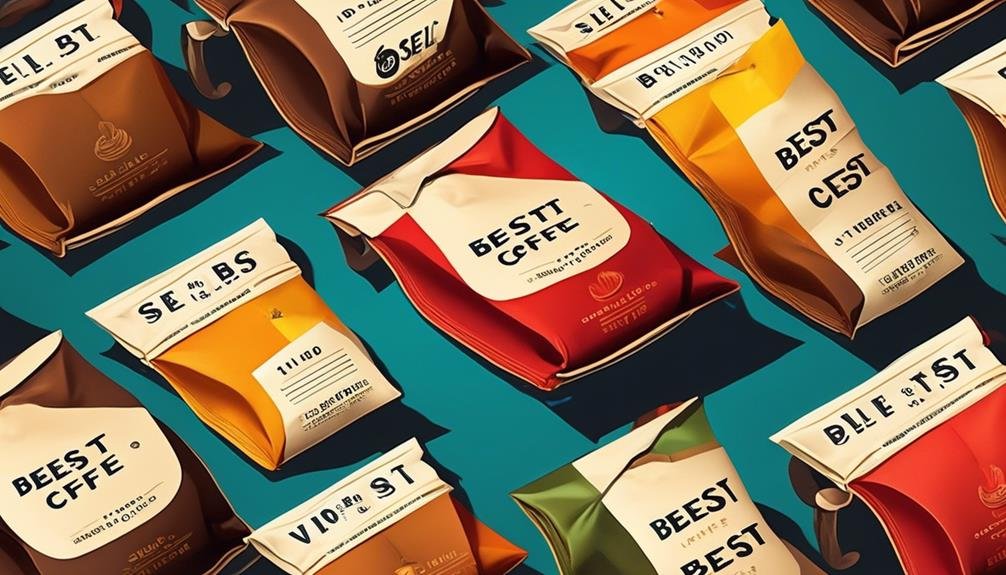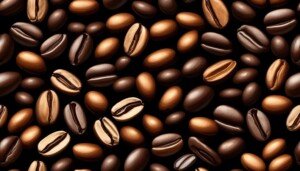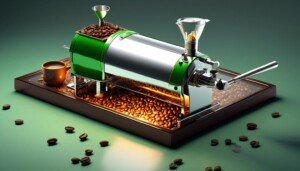Are you curious about the subtle distinctions between the 'sell by' and 'best by' dates you often encounter when purchasing coffee? You may have wondered how these dates affect the quality and freshness of your beloved beverage.
Well, fret not, as we delve into this topic, we will explore the significance of both dates, the factors that influence coffee shelf life, and how you can make informed decisions when selecting your next bag of coffee beans.
So, let's unravel the mystery and gain a better understanding of the differences between 'sell by' and 'best by' dates for coffee.
Key Takeaways
- 'Sell by' dates on coffee indicate when retailers should sell the product, ensuring freshness and quality for consumers.
- 'Best by' dates on coffee reflect the approximate point at which the coffee starts to lose flavor and freshness, but it can still be consumed after this date.
- Proper storage in airtight containers, away from light and heat, can extend the lifespan of coffee beyond the indicated dates.
- Factors such as moisture, oxygen exposure, light, and time can affect the freshness and quality of coffee, emphasizing the importance of proper storage.
Understanding 'Sell By' Dates
To understand 'sell by' dates for coffee, it's crucial to grasp their purpose and significance in ensuring product quality and safety. 'Sell by' dates indicate the date by which a retailer should sell the coffee to ensure its freshness and quality. It serves as a guideline for the retailer to determine when the product is at its best, ensuring customer satisfaction. While it isn't a safety date, it's still important to adhere to it to maintain the coffee's taste and aroma.
'Sell by' dates are determined by the coffee manufacturer based on various factors, including the coffee's roast level, packaging, and expected shelf life. These dates help retailers manage their inventory and rotate their stock, ensuring that customers always get fresh coffee. It also allows consumers to make informed decisions about the freshness of the product they're purchasing.
It is important to note that 'sell by' dates aren't the same as expiration dates. Coffee is generally safe to consume beyond the 'sell by' date as long as it has been stored properly. However, its taste and quality may start to deteriorate over time. Therefore, it's recommended to consume the coffee within a reasonable time frame after the 'sell by' date to enjoy it at its best.
Decoding 'Best By' Dates
Understanding the meaning and significance of 'best by' dates is essential when it comes to decoding the freshness and quality of coffee. While 'sell by' dates indicate the last day a store should sell a product, 'best by' dates refer to the date until which the product is expected to retain its optimal quality. When it comes to coffee, the 'best by' date is an approximation of when the coffee beans or grounds will start to lose their flavor and freshness. It is important to note that coffee can still be consumed after the 'best by' date, but the taste may not be as desirable. To help you better understand the concept of 'best by' dates for coffee, here is a table outlining what you can expect:
| 'Best By' Date | Coffee Quality |
|---|---|
| Before date | Optimal |
| On date | Still good |
| After date | May decline |
| Long after date | Likely stale |
Factors Affecting Coffee Shelf Life
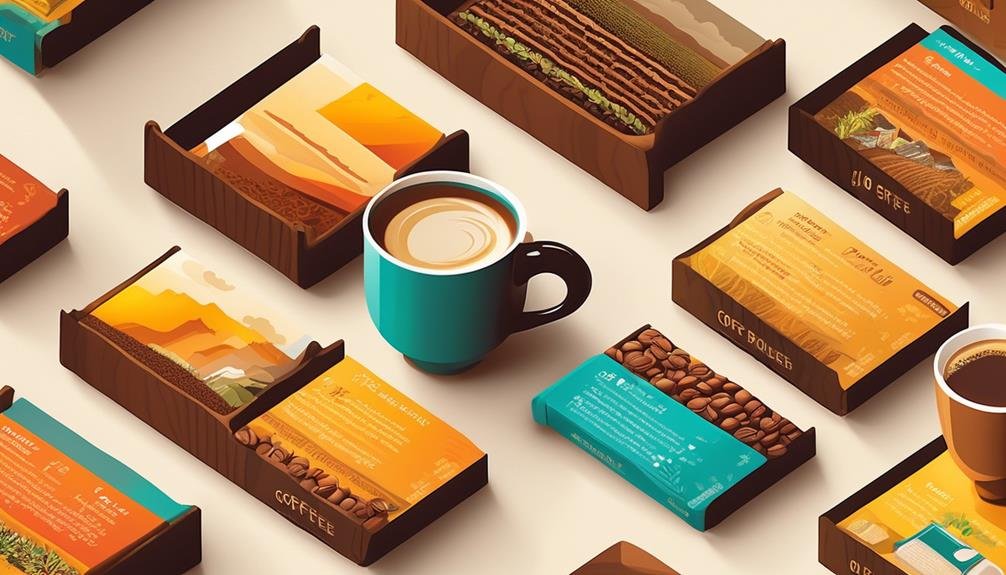
When it comes to understanding the factors that affect the shelf life of coffee, it's important to consider various elements that can impact the freshness and quality of the beans or grounds. Here are four key factors to keep in mind:
- Moisture: Coffee is highly susceptible to moisture and humidity. Exposure to these elements can lead to the growth of mold and mildew, which can greatly reduce the shelf life of coffee. It's crucial to store coffee in an airtight container in a cool and dry place to prevent moisture absorption.
- Oxygen: Oxygen is another enemy of coffee freshness. When coffee comes into contact with oxygen, it undergoes a process called oxidation, which can cause it to lose flavor and aroma. To minimize oxidation, it's advisable to store coffee in airtight containers or bags that can remove excess air.
- Light: Exposure to light can also have a negative impact on coffee. Ultraviolet (UV) rays can break down the compounds in coffee, leading to a loss of flavor and freshness. To protect your coffee, store it in a dark and opaque container, or opt for coffee packaging that's designed to block out UV rays.
- Time: Lastly, the shelf life of coffee is affected by the passage of time. Coffee beans and grounds are at their freshest within a few weeks of being roasted. Over time, the flavors and aroma will gradually diminish. It's recommended to consume coffee within a few months of the roast date for optimal freshness.
How 'Sell By' Dates Impact Coffee Quality
'Sell By' dates play a significant role in determining the quality of coffee. These dates indicate the last day a store can sell the coffee product while ensuring its freshness and taste. After the 'Sell By' date, the coffee may still be safe to consume, but its quality may decline.
Coffee beans are susceptible to oxidation, which affects their flavor and aroma. Over time, exposure to oxygen causes coffee to go stale, resulting in a loss of its rich and vibrant taste. Therefore, it's important to pay attention to the 'Sell By' date to ensure that you're purchasing coffee that's still at its peak freshness.
By consuming coffee before its 'Sell By' date, you can enjoy a more flavorful and satisfying cup of joe. Additionally, proper storage in airtight containers and avoiding exposure to heat and light can help extend the freshness and quality of the coffee beyond the 'Sell By' date.
How 'Best By' Dates Reflect Coffee Freshness
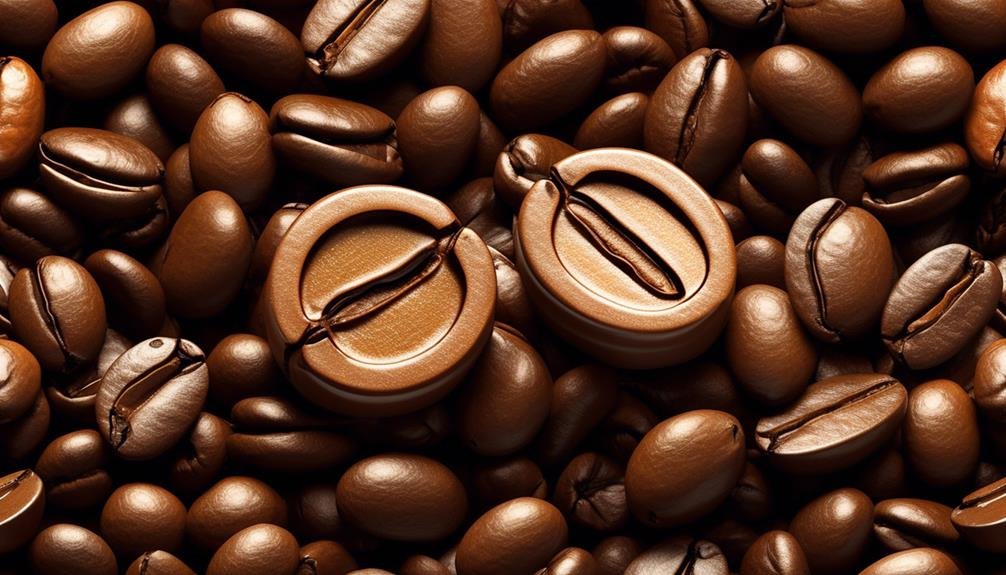
'Best By' dates provide a reliable indicator of the freshness and optimal quality of coffee. When it comes to coffee, freshness is crucial for a flavorful and enjoyable cup.
Here's how 'Best By' dates reflect the freshness of coffee:
- Peak Flavor: The 'Best By' date signifies the period during which the coffee is expected to have its best flavor profile. It ensures that you experience the full potential of the coffee's taste and aroma.
- Quality Assurance: Coffee roasters determine the 'Best By' date based on their expertise and testing. It serves as an assurance that the coffee will meet their quality standards until that date.
- Degradation Prevention: Coffee beans are prone to oxidation and moisture absorption, which can negatively impact their flavor. 'Best By' dates help you avoid purchasing coffee that may have started to degrade.
- Brewing Consistency: Fresh coffee is vital for consistent brewing. By adhering to the 'Best By' date, you can ensure that your coffee brews consistently each time, providing a reliable and satisfying cup.
Importance of Proper Coffee Storage
Proper coffee storage is essential for maintaining its freshness and preserving its flavor. When coffee beans are exposed to certain elements, such as air, light, heat, and moisture, they can quickly lose their quality. To ensure that your coffee stays fresh and flavorful, follow these guidelines for proper storage.
Firstly, store your coffee beans in an airtight container. Oxygen is the enemy of fresh coffee, as it causes the beans to oxidize and go stale. By using an airtight container, you can prevent air from seeping in and affecting the flavor.
Secondly, keep your coffee away from light. Light can cause the coffee beans to deteriorate and lose their flavor. Store your coffee in a dark, cool place, such as a pantry or cabinet, to protect it from exposure to light.
Additionally, avoid storing coffee near heat sources. Heat can accelerate the deterioration process and cause the oils in the beans to go rancid. Keep your coffee beans in a cool environment to maintain their freshness and flavor.
Lastly, be mindful of moisture. Moisture can lead to the growth of mold and spoil your coffee. Ensure that your storage container is dry and avoid storing coffee in the refrigerator, as it can introduce moisture to the beans.
Extending the Lifespan of Your Coffee
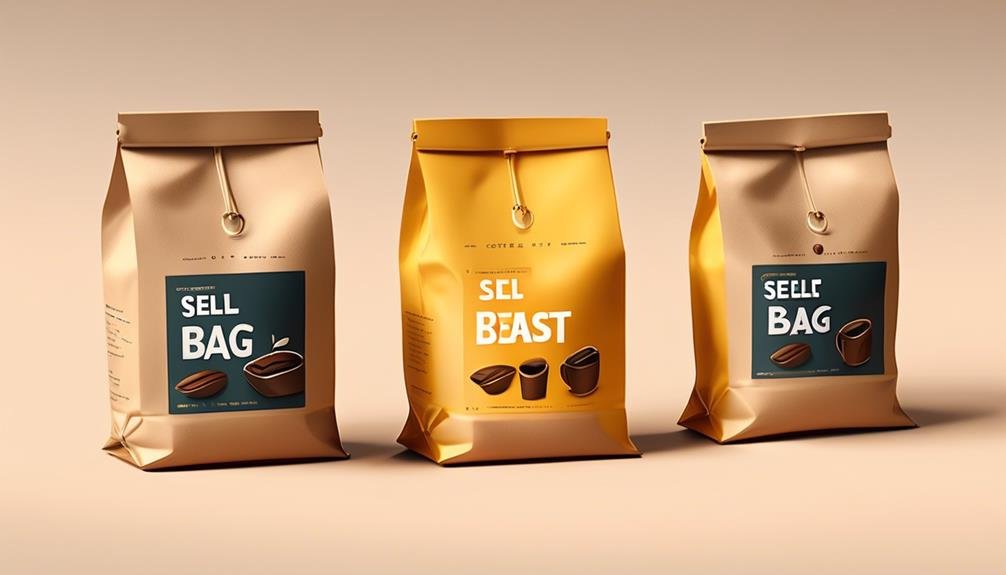
To maximize the shelf life of your coffee, there are several key steps you can take:
- Store your coffee in an airtight container: Oxygen is the enemy of coffee freshness. By storing your coffee in an airtight container, you can prevent exposure to oxygen and maintain its flavor for longer periods.
- Keep your coffee away from light and heat: Light and heat can accelerate the deterioration of coffee beans, causing them to lose their flavor and aroma. It's best to store your coffee in a cool, dark place, such as a pantry or cupboard.
- Grind your coffee just before brewing: Ground coffee has a larger surface area, which makes it more susceptible to oxidation. To prolong the freshness of your coffee, grind it just before brewing. This way, you can preserve the flavors and aromas that make your coffee enjoyable.
- Avoid freezing your coffee: While freezing coffee may seem like a good way to extend its lifespan, it can actually negatively impact the flavor. Freezing can cause moisture to accumulate on the coffee beans, leading to a loss of flavor and aroma. It's best to store your coffee at room temperature instead.
Making Informed Decisions When Buying Coffee
When purchasing coffee, it's important to consider various factors to make an informed decision.
Firstly, you should think about the roast level that suits your taste preferences. Light roasts tend to have a milder flavor with more acidity, while dark roasts have a bolder, smokier taste.
Next, consider the origin of the coffee beans. Different regions produce beans with distinct flavors and characteristics. For example, beans from Ethiopia may have fruity and floral notes, whereas beans from Brazil might have a nutty and chocolatey profile.
Additionally, check for any certifications or labels on the packaging that indicate sustainable or fair trade practices. These certifications ensure that the coffee was produced in an environmentally and socially responsible manner.
Lastly, pay attention to the packaging itself. Look for coffee that's stored in airtight containers or bags with one-way valves to preserve freshness and prevent oxidation.
Frequently Asked Questions
Are 'Sell By' Dates and 'Best By' Dates the Same Thing?
'Sell by' dates and 'best by' dates are not the same thing. A 'sell by' date indicates when the store should sell the product, while a 'best by' date suggests the optimal quality of the product.
Can Coffee Still Be Consumed After the 'Sell By' or 'Best By' Date?
Coffee can still be consumed after the 'sell by' or 'best by' date. As long as it has been stored properly, it should still be safe to drink and may still have good flavor. Trust your senses to determine if it's still good.
How Accurate Are 'Sell By' and 'Best By' Dates in Determining Coffee Freshness?
Sell by and best by dates for coffee are not very accurate in determining freshness. Trust your senses – smell and taste the coffee. If it smells and tastes fine, it's probably still good to drink.
Are There Any Health Risks Associated With Consuming Coffee Past the 'Sell By' or 'Best By' Date?
Consuming coffee past the 'sell by' or 'best by' date may not pose significant health risks, but the quality and flavor may deteriorate. It is best to follow the recommended dates for optimal freshness.
Is There a Difference in the Taste and Flavor Profile of Coffee That Is Consumed Before or After the 'Sell By' or 'Best By' Date?
When you drink coffee before or after the 'sell by' or 'best by' date, there may be a difference in taste and flavor. It's best to consume coffee within the recommended timeframe for the optimal experience.
Conclusion
In conclusion, understanding the difference between 'sell by' and 'best by' dates for coffee is crucial for ensuring its quality and freshness.
While 'sell by' dates indicate the last day a store should sell the product, 'best by' dates suggest the period during which the coffee is at its peak flavor.
Proper storage and careful consideration of these dates can help extend the lifespan of your coffee and make informed purchasing decisions.

